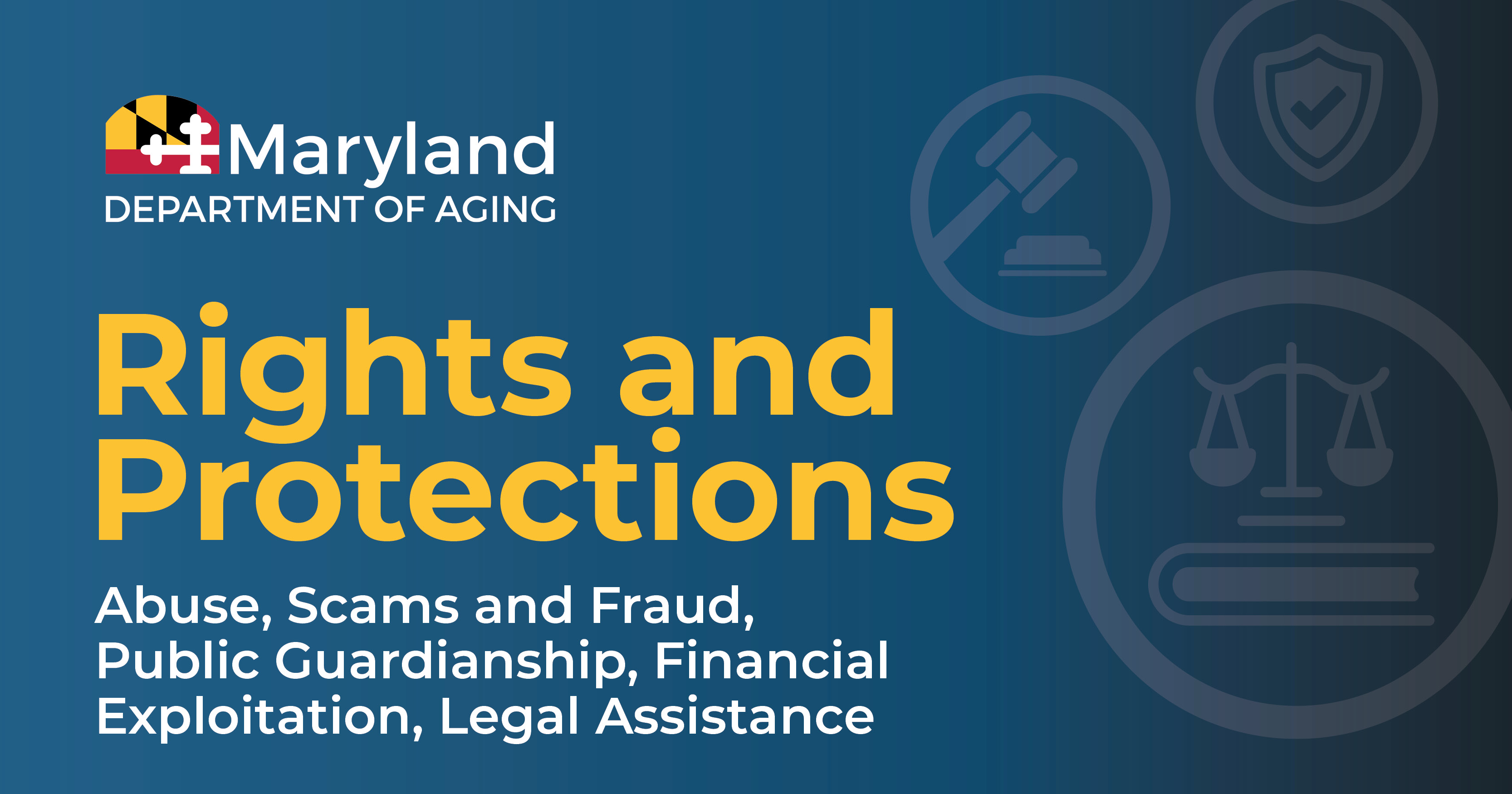
The U.S. Census Bureau estimates 22% of Maryland's population will be 60 years old or older by 2030, a 26% increase from 2012. Sadly, many older adults in Maryland become victims of crimes ranging from A.I. phone scams to patient abuse in nursing homes.
The most common
types of elder abuse include,
- Physical Abuse
- Emotional Abuse
- Neglect
- Abandonment
- Sexual Abuse
- Financial Abuse
There are resources available for reporting cases of fraud and abuse in Maryland. These resources provide crucial information on how and where to report such cases, which can help combat these issues.
Abuse Prevention
Educates older adults and their caregivers about the various forms of abuse, how to prevent abuse, and what to do if someone becomes a victim of a crime.
Elder Abuse Task Force
Effective July 1, 2023 through June 30, 2025, the Elder Abuse Task Force has been directed to study existing laws, policies, and practices relating to elder abuse and other crimes commonly committed against older adults and make recommendations regarding changes to State law, policy, and practice that would aid in preventing elder abuse.
Financial Exploitation
Provides information about the financial exploitation of older and vulnerable adults, including how to educate seniors and caregivers about financial abuse prevention.
Learn the top scams targeting older adults, how to prevent scams and fraud, know the signs and risk factors, and how to report scams and fraud.
Protection and advocacy for older adults deemed by a court of law that lack the capacity to make responsible decisions concerning their daily living needs.
Information and access to legal advice, counseling, and representation for protecting rights, and resolving consumer issues, including evictions.